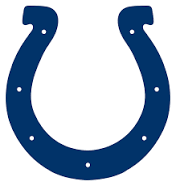Kansas City Chiefs
- Paul Grange

- Jun 19, 2025
- 2 min read

Today is #SuperBowlLIX , and as a one-off special, let's #GetTheBadgeIn for the teams involved. Playing in New Orleans, the Philadelphia @Eagles will take on the
for the second time in three years. The Chiefs won their last meeting 38-35, and they’re eager to add a 4th Super Bowl title to their incredible recent run. But before the action begins, let’s explore the surprising origins of the Chiefs.
Despite the name, the logo, the stadium (Arrowhead), the traditional costume of its fans (Native American face paint and headdresses), and the famous "Arrowhead Chop" celebration, the Kansas City Chiefs weren’t originally meant to be a nod to Native American culture.
Instead, the team was named after H. Roe Bartle. Bartle, a Kansas City local, gained prominence as the leader of the local scout association. As head of the organisation, he was called “Chief” by the scouts, and the nickname stuck. Bartle later moved into business and became an influential local figure. When President Truman asked him to lead the Economic Stabilization Agency, Bartle had to resign from 57 boards of directors to avoid conflicts of interest (something that today’s America might find amusing, given how public office is often exploited for private gain—but I digress).
With Bartle’s involvement in numerous ventures, it wasn’t long before he became the mayor of Kansas City—twice.
During his time as mayor, an opportunity came knocking. A few years earlier, in 1958, American businessman Lamar Hunt had watched the NFL Championship Game between the New York Giants and the Baltimore Colts. Widely known as "The Greatest Game Ever Played," it featured an exciting finish, innovative play, and record-breaking TV viewership. Hunt, captivated, wanted to be part of the action.
He approached the NFL about buying a franchise. They said no.
So Hunt decided to create his own league instead—the American Football League (AFL). He personally took ownership of a team based in Dallas, calling them the Texans. However, after a few years, he realised the local market couldn’t generate the revenue the team needed, so he began searching for a larger city.
That’s when Bartle stepped in. He saw an opportunity to boost Kansas City’s public profile and offered Hunt a deal, promising ground improvements and a major increase in season ticket sales. Hunt was convinced. The Texans packed up, moved to Kansas City, and renamed the team after the man who made it all happen—Chief Bartle.
So, there you have it. The Kansas City Chiefs may not have started as a tribute to Native American culture, but they represent a key chapter in the history of American sports, entrepreneurship, and civic pride.







Comments